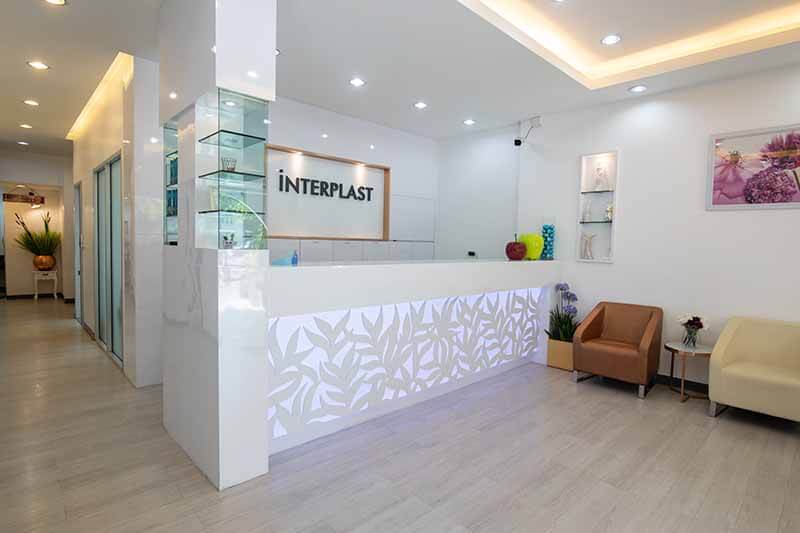Preparing for Transgender Surgery in Thailand - Step by Step Guide
Table of Contents
Thailand is an extremely attractive destination for patients seeking Sex Reassignment Surgery (SRS) – also known as transgender surgery, gender affirmation surgery or sex reassignment surgery. Many SRS patients choose to travel to Thailand for the procedure, because transgender surgery in Thailand is generally more affordable than in Western countries. But don’t be fooled into thinking that just because something is cheap, it won’t be high quality.
Thailand has many world-class surgeons in the field of SRS along with international standard medical facilities. In fact, Thai surgeons have contributed enormously to the development of SRS and gender surgery. Thailand’s first transgender surgery was performed nearly five decades ago, in 1975, and today Thailand holds the world record for the most transgender surgeries performed every year.
Thailand is also a very tolerant country, and Thai people in general have positive attitudes to transsexual and LGBTQ people.
With that said, transgender surgery is a life changing procedure that requires careful preparation. There are quite a few steps that must be completed to make sure you achieve excellent outcomes for your surgery. If you or a loved one is considering transgender surgery in Thailand, here is a short guide to help you understand and prepare for what is involved.
How to Prepare for Transgender Surgery
1. Stop Hormone Therapy
Generally speaking, all hormone treatments should be stopped approximately one month before surgery. This is especially important in case of male-to-female transgender surgery. The female hormone, estrogen, can increase the risk of certain complications, such as blood clots, during surgery, so it is important to come off hormones for at least four weeks before. Individual factors (such as smoking or being overweight) may also affect the length of time, so speak to your consultant about this.
Hormone treatments can usually be resumed after 3-4 weeks or when the surgical wound is completely healed.
2. Referral from a Psychiatrist
In order to undergo transgender surgery in Thailand, you will need to submit two referral letters. The first referral should be from a licensed psychiatrist in your own country. There is no standard format for this, but the letter must confirm that you have been diagnosed with body dysmorphia and that you are mentally and physically ready to undergo surgery. The letter should be no older than 6 months.
You’ll also need a referral letter from a psychiatrist in Thailand. This can only be obtained in person after you arrive in Thailand. You can book the appointment on your own or use a dedicated concierge service, such as the Add-On Aftercare Package provided by Interplast Clinic in Bangkok.
3. HIV Test
You will need to take an HIV test before your surgery. You can do this before you arrive in Thailand, but the results should be no older than 3 months.
4. Any Other Medical Certificates
If you have any congenital diseases that require regular medication, it’s also important that you have your physical examination results and a certificate from your internal medicine physician. Furthermore, if you’re taking any regular medication, you should discuss this with your surgeon beforehand to make sure there will be no complications.
5. Stop Smoking & Drinking Alcohol
If you’re a smoker, it is recommended that you stop at least one month before your surgery. Studies have shown that quitting smoking before any major surgery can decrease the risk of complications, including post-operative blood clots, pneumonia, and heart attacks.
Quitting cigarettes before surgery also makes a huge difference to post operation recovery. Cigarettes contain carbon monoxide which depletes the body’s tissue of oxygen it needs to heal. Patients who stop smoking at least four weeks before surgery experience better outcomes in terms of wound healing and have a lower risk of infections.
You should also abstain from drinking alcohol in the weeks leading up to surgery. One of the main reasons is that alcohol can thin the blood, which interferes with the blood’s ability to clot, which in turn can make it more difficult for surgeons to control bleeding during surgery.
You should avoid smoking and drinking alcohol in the post operation recovery period to reduce your risk of complications and to promote healing.
6. Laser Hair Removal
Genital laser hair removal (genital electrolysis) is absolutely necessary before any male to female transgender surgery. The amount of hair that needs to be removed depends on the technique used in the surgery, so always make sure to discuss this beforehand with your surgeon.
For example, the most popular SRS technique, penile inversion vaginoplasty, involves the surgeon using skin from the penile shaft, scrotum and perineum to construct a neovagina. Any hair that can grow on these areas, if not treated, can grow back inside the neovagina. This is not just potentially aesthetically unpleasing but can lead to irritation and infections as well as discomfort and pain during sex.
The hair growing inside the neovagina is extremely hard to treat after the operation, so the area must be completely and permanently cleared before surgery.
The genital electrolysis must be performed at least 2-3 times and completed at least two weeks before your surgery.
Post-Operation Recovery
On average, patients will be admitted to hospital for about a week and should prepare to stay in Thailand for three weeks after surgery. Remember that you’ll also need to obtain a referral from a psychiatrist in Thailand before your operation – all this needs to be factored in when booking flights and hotels.
One important thing is to ensure that you have someone to take care of you for the weeks following your discharge from hospital. There are quite a few things you will need to navigate in the post-operation period, from wound cleaning and pain management to dilation and beyond.
If you’re travelling to Thailand for your transgender surgery alone, you should enquire if the operating clinic can arrange a concierge service to simplify the pre and post-operative experience for you. For example, at Interplast Clinic, we have a dedicated Add-On Aftercare Package for transgender patients, which includes all the personal assistance you need the minute you step off the plane until you’re ready to go home again.
Your concierge at Interplast Clinic is typically a person who has gone through transgender surgery themselves, and they are there to help you feel more comfortable. Your concierge will arrive to pick you up from the airport. They will arrange all transfers and will be available 24/7 before your operation and during your recovery at the hospital. They will also visit you daily to assist with wound cleaning and dilation at your hotel post-surgery.
If you’d like to know more about MTF transgender surgery at Interplast Clinic in Bangkok, speak to one of our consultants today.














